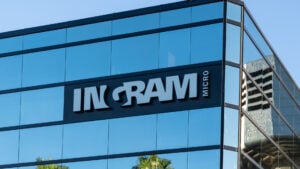Patrick Theobald explains his visions for Industry 4.0, discusses current challenges and highlights the opportunities that the digital transformation holds for companies of all sizes.
How did you become a founder, Mr. Theobald
Patrick Theobald: It was never a conscious decision. After a few years in a corporate group, I wanted to try something new and started my own business. It was more of an accident that something like a real company with a real product could emerge from this. But now I wouldn’t want to give it up under any circumstances.
What makes Stuttgart so special as a business location?
Patrick Theobald: Stuttgart is a great city in many respects. Above all, you can find the gems of the SME sector here. Hidden champions who hold the world together and drive it forward with their products and inventions. A great combination that also radiates beyond the city limits.
From a start-up’s perspective, Stuttgart is also an ideal breeding ground. The local universities and other educational institutions make a valuable contribution to the training of the next generation of engineers – at a world-class level.
What fascinates you about the topic of “digitalization in industry”?
Patrick Theobald: What never ceases to amaze me is the huge potential that can still be leveraged here. We are operating in a high-wage country, so every percent increase in efficiency is worth cash. It’s great fun to realize this together with our customers. When we get feedback that certain initiatives or projects are actually reflected in the KPIs in the end – for example, making a machine more efficient or more tolerant of errors – that’s the greatest thing for me and I draw a lot of motivation from that.
What problems do SMEs currently have to overcome?
Patrick Theobald: The shortage of skilled workers is a crucial issue and not without good reason on everyone’s lips. Cost pressure and tough competition from Asia, a constant battle against bureaucracy. The list of problems is long, but not insurmountable. In my opinion, with the right tools and methods and an open mindset, this can be easily overcome. Despite all the prophecies of doom, we in Germany simply have a good basis. I would like to see us get back to a roll-up-your-sleeves mentality as soon as possible and stop complaining so much.
What problems does your Peakboard software solve?
Patrick Theobald: Our vision is to use Peakboard to create a platform that makes operating a factory as easy as using an iPhone. Specifically, it can solve all kinds of digitization problems. Paperless processes, access to the right information from all possible data sources, a perfect user interface precisely for the people who do the actual work in production. The requirements are as diverse as the interpretation of the term digitalization. That’s what makes Peakboard special.
What obstacles have been encountered during development?
Patrick Theobald: Peakboard is technically a very sophisticated product, as we establish a data connection to all typical IT and OT artefacts that are needed in the context of digitalization projects. From low-level sensors and microcontrollers to MES systems, databases, ERP systems such as SAP and, of course, the whole world of the cloud and artificial intelligence. This requires a lot of investment in development, because we need experts for all of these worlds and have to dive deep into each of them.
What are the next big digitalization trends in the industry?
Patrick Theobald: We are currently seeing a lot of focus on low-code/no-code. The reason for this is that companies not only want to change the applications they build easily, but also don’t want to have to start an IT project every time they want to make certain changes. I assume that this trend will continue.
We will see platforms such as Peakboard, where a constant change in the status quo is already built in. In addition, the topic of AI will leave its current experimental status and become mainstream. And at all levels. We should therefore already be addressing the question of how we can get AI to the workers in the factory and how it can help them to make their work more efficient and safer.
What advice do you have for small and medium-sized companies so that they can successfully master the challenges of digitalization?
Patrick Theobald: The ultimate tip in this context is to simply get started. The world belongs to the creators. Digitalization is not God-given and doesn’t fall from the sky. You have to get moving. And if you don’t know exactly where to start, my advice is to start small.
A good starting point would be to stop printing out the OEE chart and distribute it digitally instead. Or simply identify an obvious productivity killer that can be prevented if someone receives information earlier or proactively that they would otherwise not have received. I’m sure there’s something in every production and logistics department. Once you get started, you move on from there. The appetite comes with eating.
Mr. Theobald, thank you for this interview.




